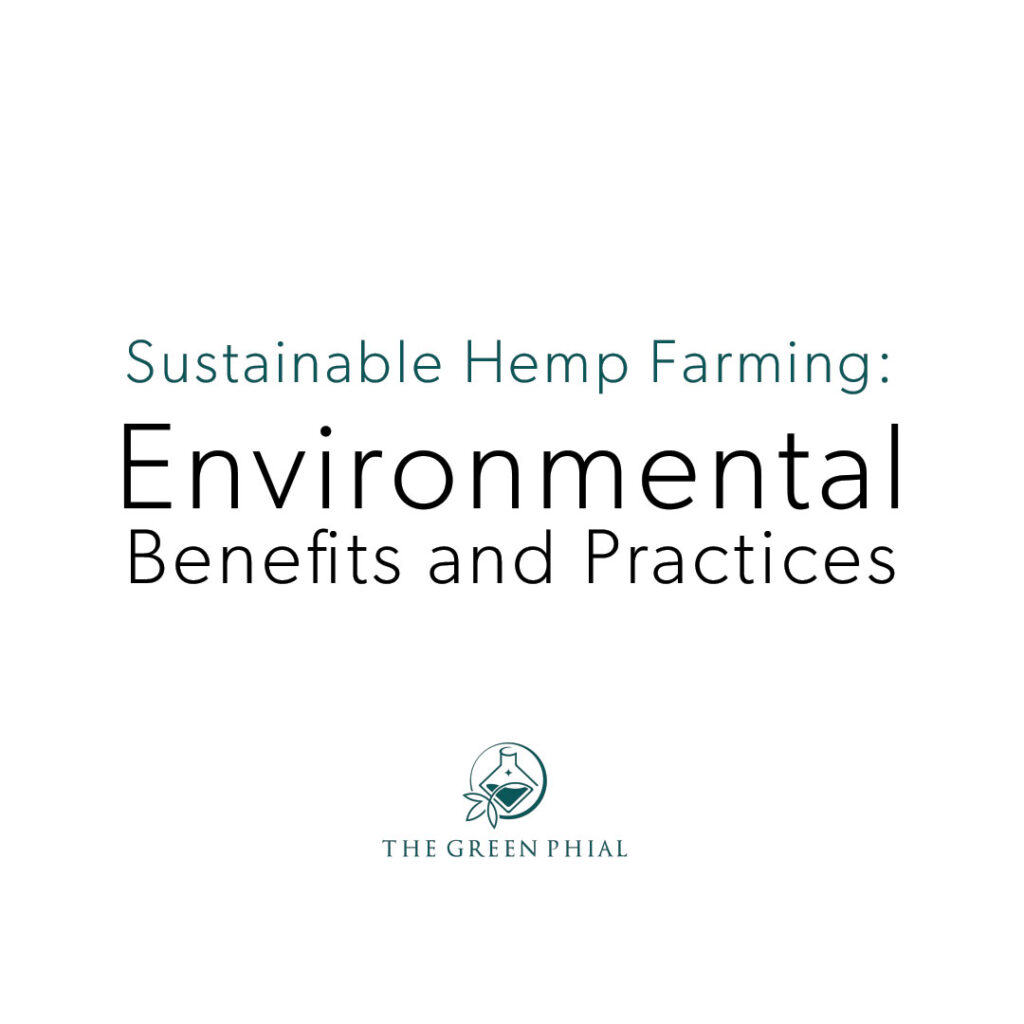Sustainable Hemp Farming: Environmental Benefits and Practices
 Hemp farming is making a remarkable comeback, driven by its versatility and environmental benefits. As an eco-friendly crop, hemp offers a sustainable solution to many of the challenges faced by traditional agriculture. This article explores the environmental advantages of hemp farming and the best practices for cultivating this incredible plant responsibly.
Hemp farming is making a remarkable comeback, driven by its versatility and environmental benefits. As an eco-friendly crop, hemp offers a sustainable solution to many of the challenges faced by traditional agriculture. This article explores the environmental advantages of hemp farming and the best practices for cultivating this incredible plant responsibly.
The Environmental Benefits of Hemp Farming
- Carbon Sequestration: Hemp is a powerful carbon sink, absorbing more CO2 per acre than many other crops. This helps combat climate change by reducing greenhouse gases in the atmosphere.
- Soil Health Improvement: Hemp’s deep roots prevent soil erosion and improve soil structure. It can also remediate contaminated soil through a process called phytoremediation, extracting toxins and heavy metals.
- Reduced Water Usage: Compared to crops like cotton, hemp requires significantly less water, making it a sustainable choice for water-scarce regions.
- No Need for Pesticides: Hemp is naturally resistant to pests and diseases, reducing the reliance on harmful pesticides and promoting a healthier ecosystem.
- High Yield and Versatility: Every part of the hemp plant can be used, from seeds for food products to stalks for textiles and bioplastics, minimizing agricultural waste.
Best Practices for Sustainable Hemp Farming
- Crop Rotation: Incorporating hemp into a crop rotation system enhances soil fertility and reduces the risk of disease and pests.
- Organic Farming Methods: Avoid synthetic fertilizers and pesticides, opting for natural alternatives to maintain soil and ecosystem health.
- Efficient Water Management: Use drip irrigation or rainwater harvesting to minimize water consumption and ensure sustainable farming practices.
- Seed Selection: Choose hemp varieties suited to your local climate and soil conditions to maximize yield and sustainability.
- Support Biodiversity: Intercropping hemp with other plants can attract beneficial insects and promote a balanced ecosystem.
Hemp’s Role in a Sustainable Future
Hemp’s versatility extends beyond agriculture, offering eco-friendly alternatives in various industries:
- Textiles: Hemp fibers are durable, biodegradable, and require fewer resources than cotton.
- Construction: Hempcrete, made from hemp hurds and lime, is an energy-efficient and sustainable building material.
- Plastics: Hemp-based bioplastics are renewable and biodegradable, reducing reliance on fossil fuels.
- Energy: Hemp can be converted into biofuels, offering a renewable energy source.
Challenges and Opportunities
While hemp farming has immense potential, it faces challenges such as regulatory hurdles, limited processing infrastructure, and market awareness. By addressing these issues, the industry can unlock hemp’s full potential as a cornerstone of sustainable agriculture.
Final Thoughts
Sustainable hemp farming is more than a trend; it’s a movement toward a greener future. By embracing environmentally friendly practices and exploring innovative uses for hemp, farmers and industries can contribute to a more sustainable and resilient world. Whether you’re a farmer, entrepreneur, or consumer, supporting hemp can drive positive change for the planet.
